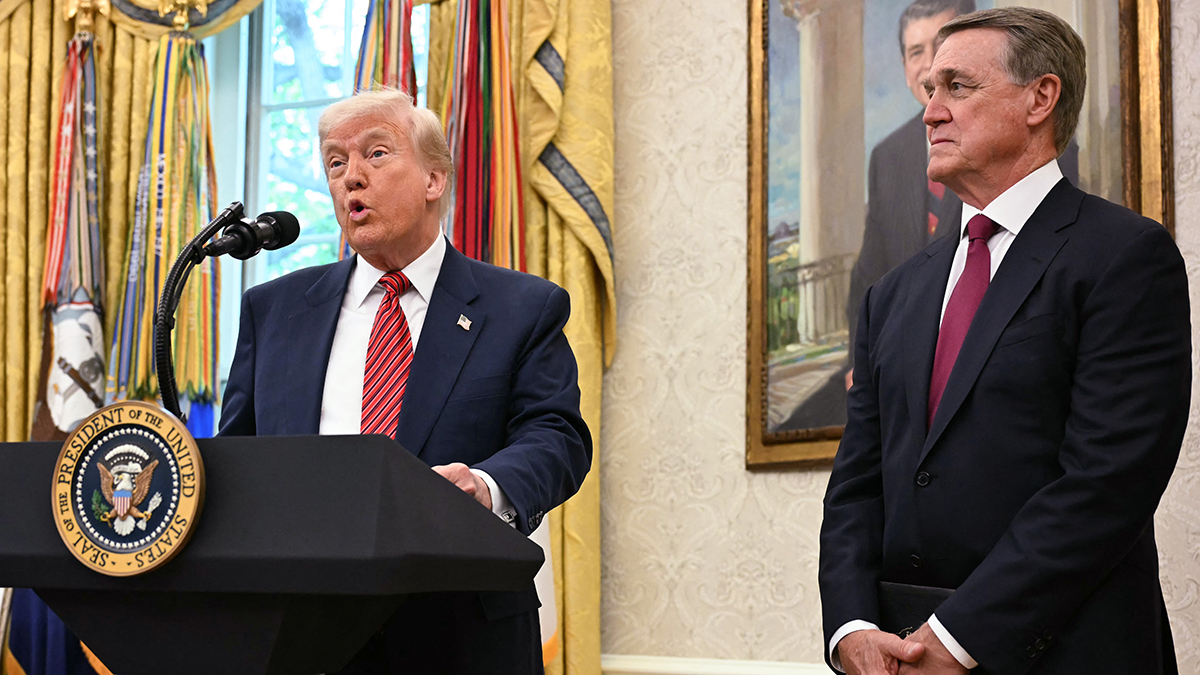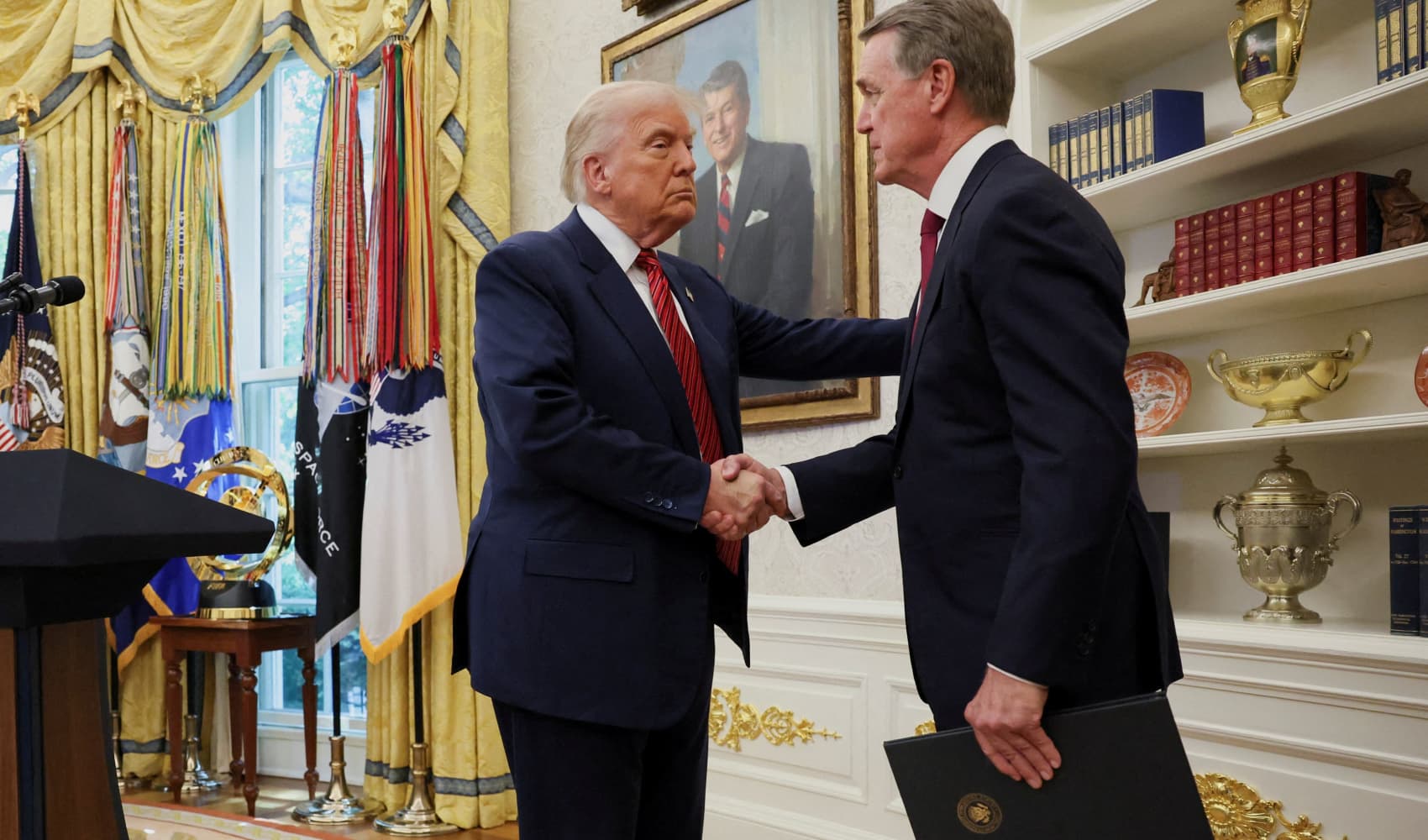Stagflation Alert: Fed Warning Signals Economic Storms Ahead
Navigating Economic Storms: Stagflation Fears Loom as New China Envoy Takes Post
Introduction: Troubling Times Ahead?
Hold on to your hats, folks, because it feels like we're heading into a bit of a whirlwind! A potent mix of economic uncertainty and geopolitical shifts is brewing, and it's time to pay attention. The Federal Reserve is sounding alarms about potential stagflation, and a new U.S. ambassador is heading to China amidst ongoing trade tensions. Are these isolated events, or are they pieces of a larger, more concerning puzzle? Let's dive in and try to make sense of it all.
Fed's Warning Signals: Stagflation on the Horizon?
Interest Rates Remain Unchanged
The Fed has decided to hold steady on interest rates for now. This move comes as they carefully weigh the delicate balance between controlling inflation and fostering economic growth. But, this isn't just a "business as usual" scenario. The Fed's statement included a stark warning.
Rising Concerns About Inflation and Unemployment
The big takeaway? The Fed is worried about stagflation. What exactly *is* stagflation? Think of it as the worst of both worlds: high inflation coupled with high unemployment and stagnant economic growth. It's like driving a car with the brakes on, constantly needing to fill up the tank! The Fed's concern suggests that Trump's tariffs plan might be contributing to both higher prices (inflation) and slower job creation (unemployment).
Trade Tensions and the Chinese Conundrum
A New Ambassador Takes the Helm
Former Senator David Perdue has been sworn in as the U.S. ambassador to China. This appointment comes at a critical juncture, as the administration gears up for crucial discussions with Chinese officials on trade and economic policies. Perdue's experience in the Senate will be invaluable as he navigates the complex landscape of U.S.-China relations. Is he the right person to defuse the tensions?
The Stakes are High: Trade and Economic Matters
The meetings with Chinese officials will cover a wide range of topics, including trade imbalances, intellectual property rights, and market access. Remember those tariffs we mentioned earlier? These are all part of the chess game, and Perdue will play a key role in shaping the strategy.
Trump's Administration Under the Microscope
Congressional Hearings: Scrutiny and Accountability
It's not just the Fed and China that are making headlines. Several of Trump's top officials, including his energy, agriculture, and treasury secretaries, as well as his FBI director, faced tough questions from Congress. These hearings provide an opportunity for lawmakers to examine the administration's budget proposals, policy priorities, and overall performance.
Budget Battles and Policy Priorities
What's on the agenda? Expect heated debates on issues like government spending, tax cuts, and regulatory reforms. The outcomes of these hearings could have significant implications for the economy and the country as a whole.
Undocumented Immigrants and Libya: A Controversial Plan
Shifting Immigration Policies
In a move that has sparked widespread controversy, the U.S. is reportedly planning to send a group of undocumented immigrants to Libya. This decision has raised serious ethical and humanitarian concerns.
Ethical and Humanitarian Concerns
Human rights organizations and advocacy groups are voicing strong opposition to the plan, arguing that Libya is an unsafe and unstable country for refugees and asylum seekers. The implications of this policy could be far-reaching and could set a dangerous precedent.
Decoding Stagflation: What Does it Really Mean?
Understanding the Economic Jargon
Let's break down the term "stagflation" a little further. It's not something you hear every day, but it can have a devastating impact on the economy. Stagflation is a situation where economic growth slows (or even contracts) while inflation remains stubbornly high. This creates a difficult policy dilemma for central banks, as they try to stimulate growth without fueling further inflation.
The Double Whammy: High Inflation and Unemployment
Imagine trying to balance a seesaw with weights on both sides. On one side, you have rising prices that erode purchasing power and squeeze household budgets. On the other, you have job losses and stagnant wages that make it harder for people to make ends meet. It's a recipe for economic hardship.
Tariffs and Their Impact on Inflation
The Price We Pay for Protectionism
Tariffs, which are taxes on imported goods, are often used to protect domestic industries from foreign competition. However, tariffs can also lead to higher prices for consumers, as companies pass on the cost of the tariffs to their customers. Trump's tariffs plan, while intended to boost American manufacturing, could inadvertently contribute to inflation and stagflation.
Ripple Effects Across the Economy
The effects of tariffs can ripple through the entire economy, impacting everything from consumer goods to industrial inputs. Businesses may be forced to raise prices, cut wages, or even lay off workers to cope with the increased costs. Ultimately, the burden falls on consumers and workers.
The Geopolitical Landscape: China's Role in the Global Economy
A Complex Relationship: Competition and Cooperation
The U.S.-China relationship is one of the most important and complex in the world. The two countries are major economic powers, but they also have significant differences on issues such as trade, human rights, and security. Navigating this relationship requires skillful diplomacy and a clear understanding of each country's interests.
Trade Wars and Global Instability
Trade disputes between the U.S. and China can have a destabilizing effect on the global economy, disrupting supply chains, increasing uncertainty, and undermining investor confidence. Finding common ground and resolving these disputes is essential for maintaining global economic stability.
The Role of Congress: Checks and Balances
Oversight and Accountability
Congress plays a vital role in overseeing the executive branch and holding government officials accountable. Congressional hearings, investigations, and budget debates provide a forum for lawmakers to scrutinize the administration's policies and ensure that they are in the best interests of the country.
Shaping Policy Through Legislation
Congress also has the power to shape policy through legislation. Lawmakers can pass laws that address issues such as trade, immigration, and economic regulation. The legislative process can be slow and contentious, but it is a crucial part of the American system of government.
Immigration Policy and its Consequences
Balancing Security and Humanitarian Concerns
Immigration policy is one of the most contentious and politically charged issues in the United States. Finding a balance between security concerns, economic needs, and humanitarian values is a challenge. The decision to send undocumented immigrants to Libya raises serious questions about the treatment of vulnerable populations.
The Human Cost of Policy Decisions
It's crucial to remember that immigration policies have a direct impact on the lives of real people. Policies that are perceived as unfair or inhumane can erode public trust and undermine the integrity of the government.
Looking Ahead: Navigating Uncertain Times
Staying Informed and Engaged
In times of economic and political uncertainty, it's more important than ever to stay informed and engaged. Follow the news, read reputable sources, and participate in civic discourse. Your voice matters.
The Importance of Critical Thinking
Be skeptical of information that you encounter online, and always check the source. Develop your critical thinking skills so you can distinguish between fact and fiction, and make informed decisions about the issues that affect your life.
Conclusion: Key Takeaways and Moving Forward
So, what have we learned? The Fed is worried about stagflation, a new ambassador is heading to China during a period of trade tension, and the administration's policies are facing scrutiny in Congress. It's a complex picture, but by staying informed and engaged, we can navigate these uncertain times and work towards a more stable and prosperous future. Remember, the future isn't written in stone. We all have a role to play in shaping it.
Frequently Asked Questions
Q1: What exactly is stagflation and why is it so bad?
Stagflation is a combination of slow economic growth, high unemployment, and high inflation. It's bad because it's difficult for policymakers to address. Raising interest rates to combat inflation can hurt economic growth and worsen unemployment, while lowering interest rates to stimulate growth can fuel inflation.
Q2: How could Trump's tariffs lead to stagflation?
Tariffs increase the cost of imported goods, which can lead to higher prices for consumers (inflation). They can also disrupt supply chains and harm businesses, leading to slower economic growth and job losses (unemployment). This combination of factors can create a stagflationary environment.
Q3: Why is the U.S.-China relationship so important to the global economy?
The U.S. and China are the two largest economies in the world. Their trade relationship and economic policies have a significant impact on global growth, trade flows, and financial markets. Tensions between the two countries can create uncertainty and instability in the global economy.
Q4: What can Congress do to address the risk of stagflation?
Congress can take steps to address the risk of stagflation by implementing policies that promote economic growth and reduce inflation. This could include measures to increase productivity, reduce trade barriers, and control government spending. Congressional oversight is also key to ensuring accountability of executive branch economic policies.
Q5: What does sending undocumented immigrants to Libya have to do with any of this?
While seemingly unrelated, this policy decision underscores the administration's broader approach to immigration and foreign policy, which can impact the overall economic and geopolitical landscape. It also raises questions about humanitarian values and the treatment of vulnerable populations, which can affect the U.S.'s standing in the world and its ability to cooperate with other countries on economic issues.

